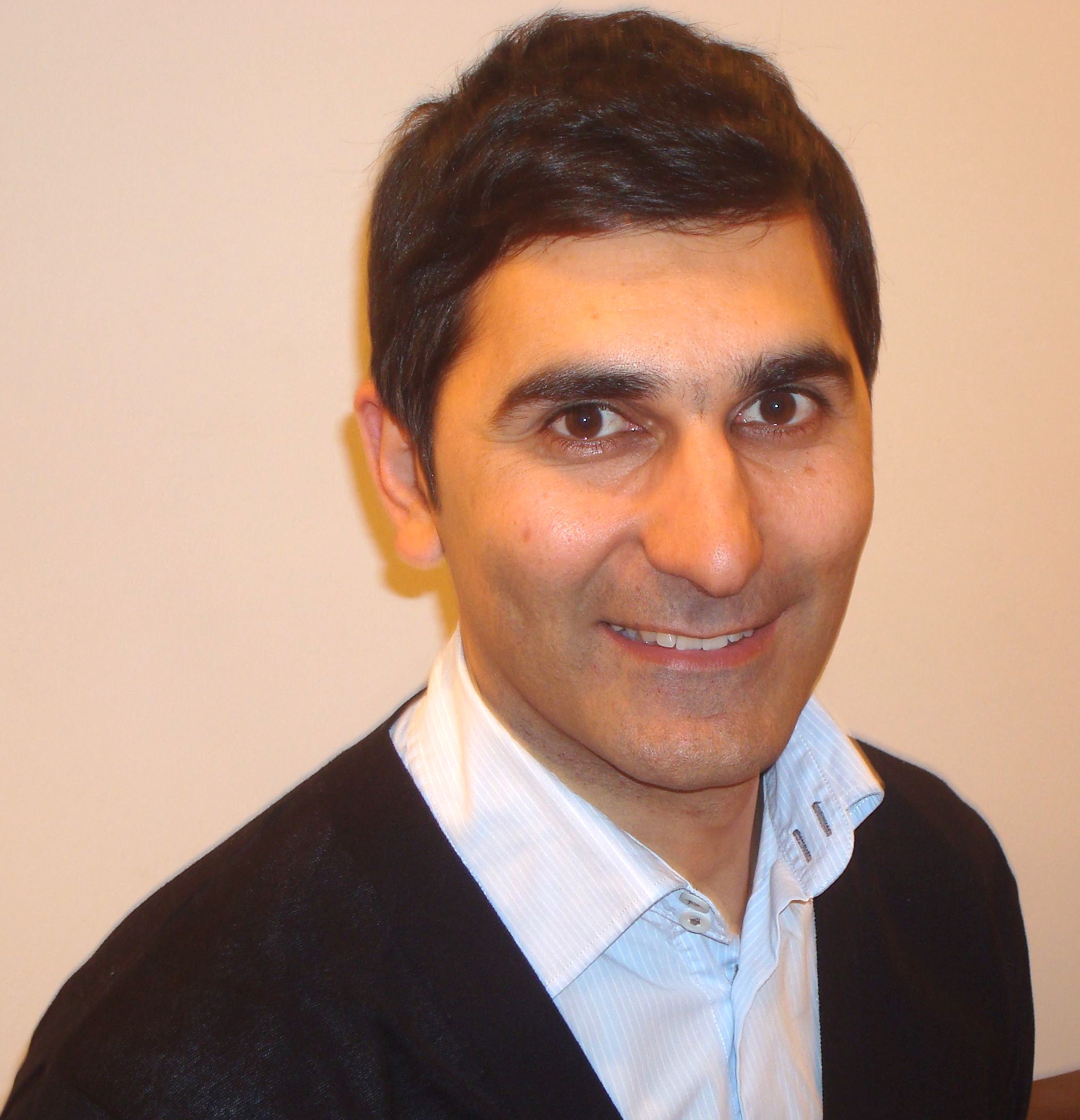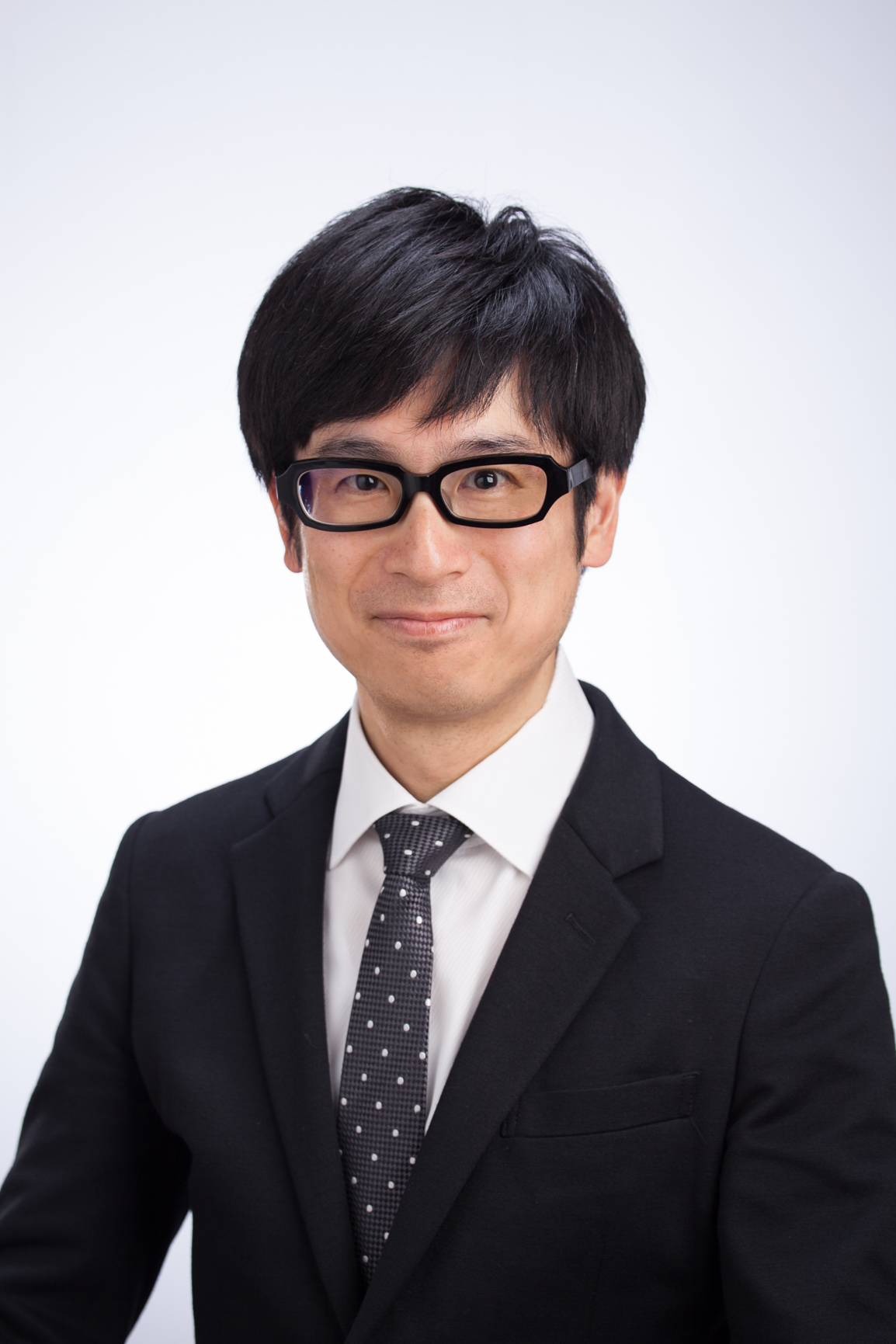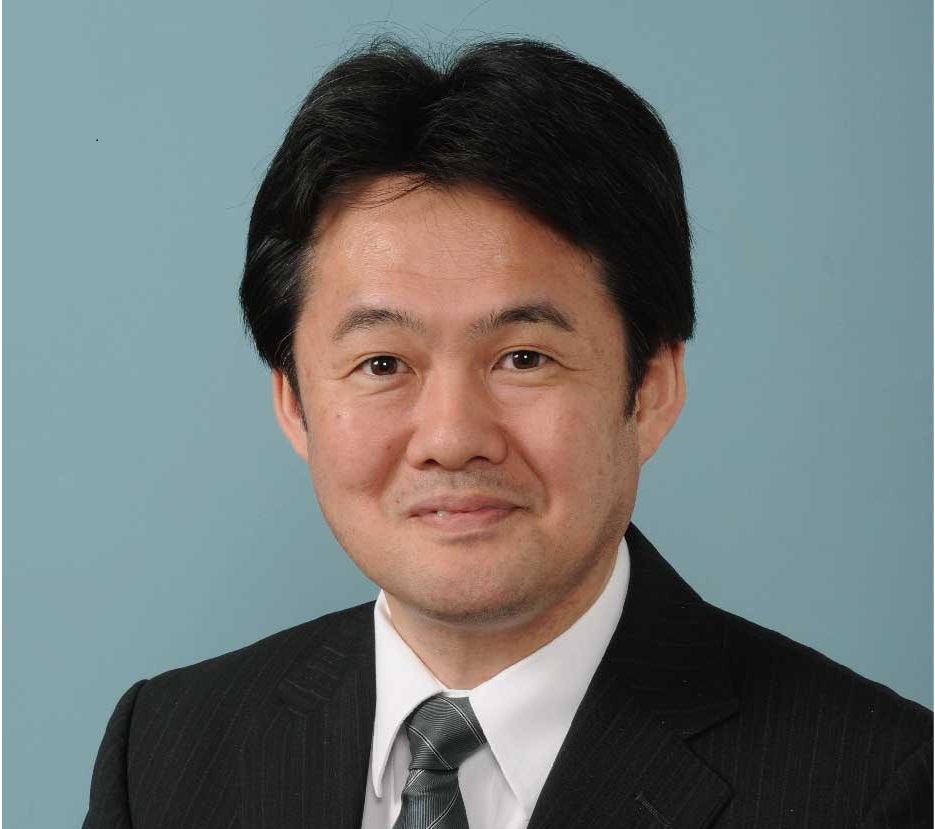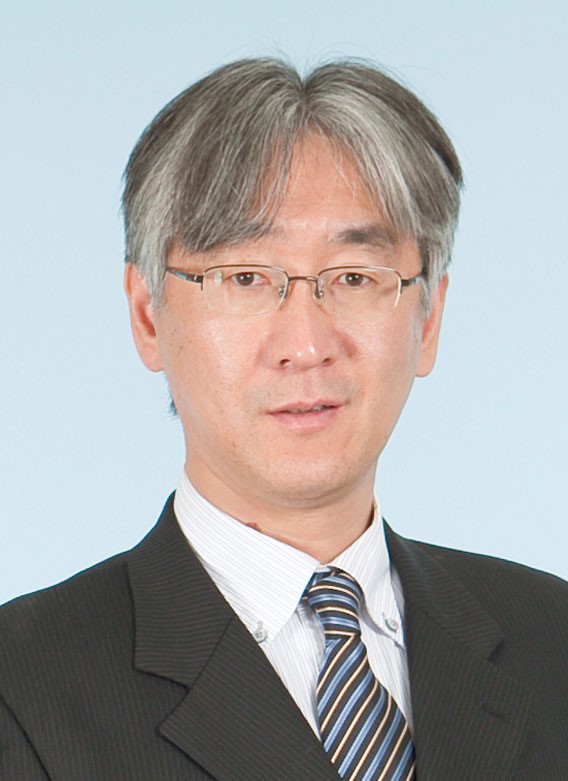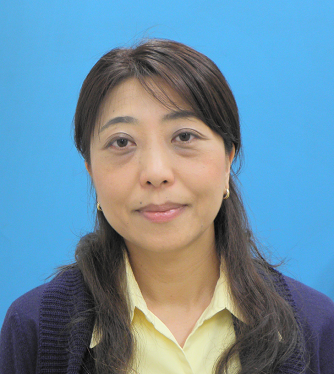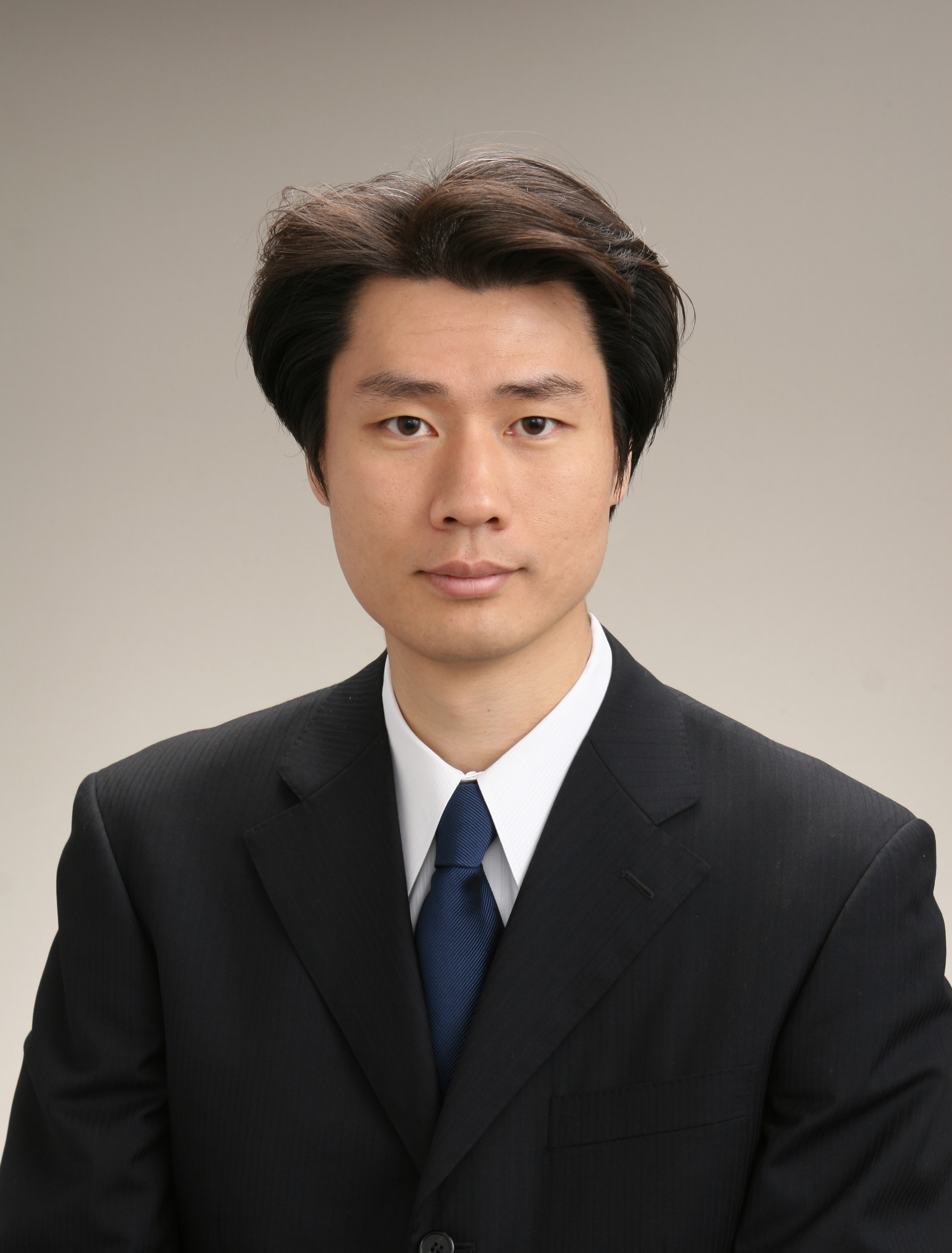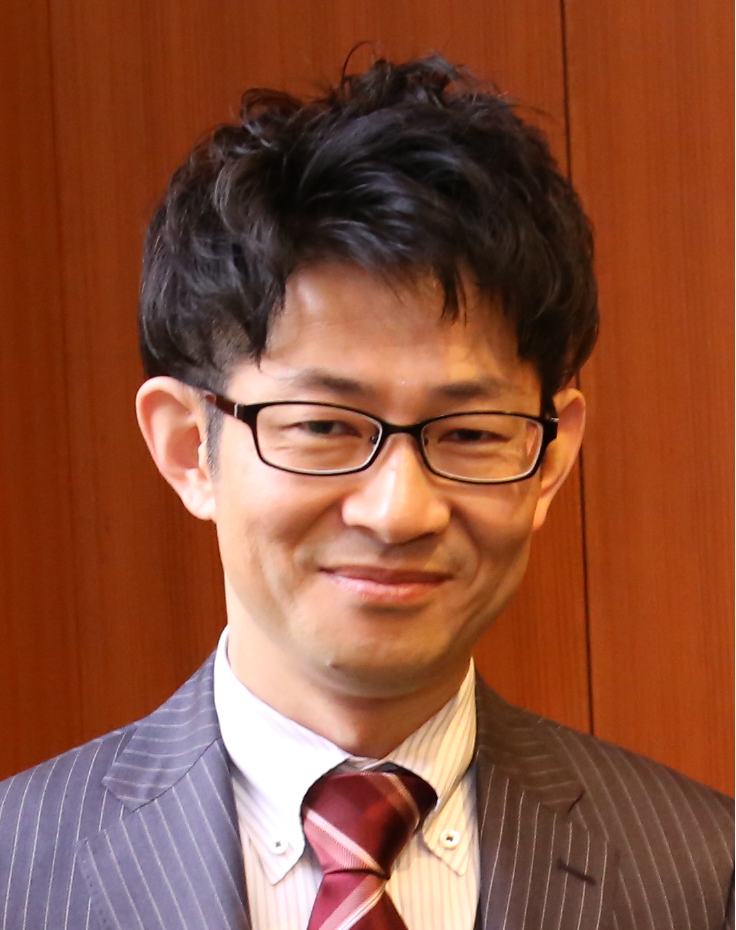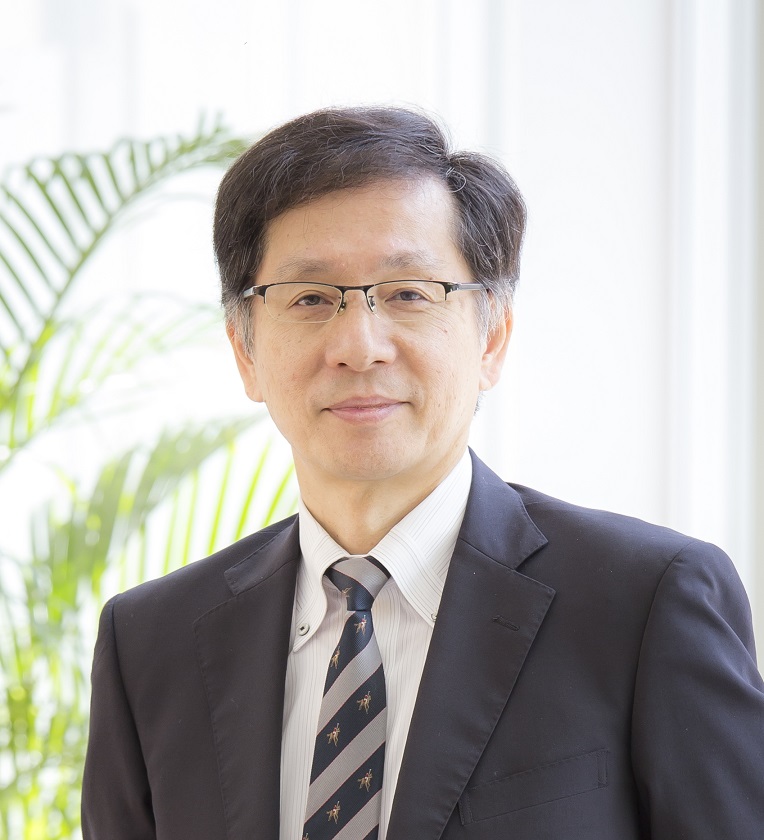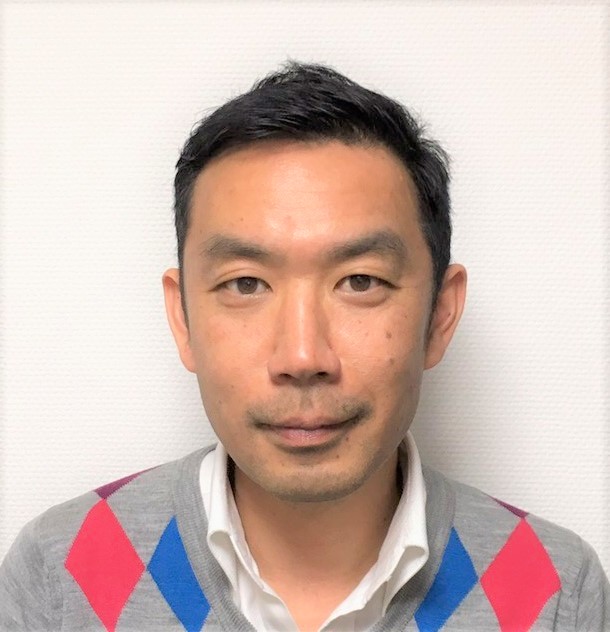
|
|
|
Program > Speakers
| Invited Speakers | |
|---|---|
| French Delegation | |
|
|
Prof. Luc Avérous is a Group (BioTeam) Leader, Head of Polymer Research Department at ICPEES (UMR CNRS 7515) - University of Strasbourg (France), Head of Joint Research Lab (Mutaxio) and former Lab Director. He started as a Polymer Engineer (EAHP-Strasbourg). He spent several years working (i) in the pharmaceutical industry as R&D Eng. (Synthelabo Group) and (ii) at Univ. of Montpellier as a junior researcher on polymer chemistry. In 1995, he obtained his Ph.D. in Polymer Sci. & Eng. from Ecole des Mines de Paris. After 2 post-doctoral positions (Ecole Polytech. de Montreal-Canada,), he became A/Prof. at the Packaging Eng. School (Reims) in 1997. Finally, in 2003 he became a Full Professor at ECPM (Strasbourg), where he teaches biopolymers & biomaterials science, polymers processing,During the last decades, his major research projects have dealt with biobased and/or biodegradable polymers for environmental & biomedical applications. As a leading international expert in these fields, he has developed strong collaborations with several foreign labs (Australia, Brazil, Spain,) and major companies (Soprema, Tereos, PSA,). He serves as a member of research advisory boards for different companies. He is regularly invited to co-organize conferences, to chair symposia, and to give plenary or keynote lectures. He has co-edited 4 books (2 Wiley, Elsevier & Springer). He is a member of several Editorial Boards. He is a referee for many journals, books, international projects, and institutions.He has published hundreds of scientific communications with around 10,000 citations (Scopus).
|
|
|
Prof. Stéphane Carlotti began polymer chemistry researches in 1993 in the laboratory of Chimie Macromoleculaire, managed by Pr. F. Schué, at the University of Montpellier II and got his PhD in polymer science in 1998. After a post-doctoral position at the Loker Hydrocarbon Research Institute (University of Southern California, Los Angeles, USA) supervised by Pr. T. Hogen-Esch, he joined the Laboratoire de Chimie des Polymères Organiques (LCPO) at the University of Bordeaux / Bordeaux INP in 1999 as Assistant Professor. He is now Full Professor in the same laboratory. His main research interests are anionic polymerizations with the finding of new synthesis methodologies and the synthesis of (co)polymers with various architectures, especially polymerization of ethylenic and heterocyclic monomers with organometallic and organic initiators/catalysts. Title of the talk: Reactivity Modulation in Anionic Polymerization
|
|
|
Prof. Eric Drockenmuller received his PhD degree in 2002 from the University of Strasbourg (France) after working on nitroxide mediated radical polymerization. He undertook a two years postdoctoral position with Prof. C. J. Hawker (IBM Almaden Research Center, California, USA) and Prof. T. P. Russell (University of Massachusetts, Amherst, USA) working on the synthesis and functionalization of nanostructured polymer materials. He was appointed assistant Professor in 2004 at the University Claude Bernard Lyon 1 (France) and promoted full professor in 2011. From 2010 to 2015 he was appointed junior member of the ‘‘Institut Universitaire de France’’ (IUF). In 2015 he spent 6 month at the University of California in Berkeley as a Fulbright scholar. His main interests include the synthesis of tailored functional materials using robust, efficient and orthogonal methodologies, vitrimer materials and ion conducting polymer materials for energy applications.
Title of the talk: Poly(1,2,3-triazolium)s: functional and dynamic polymer electrolytes
|
|
|
Dr. Didier Gigmes completed his PhD in organic chemistry in 1998 under the supervision of Prof. Paul Tordo at the University Paul Cézanne in Marseille (France). Then he moved to Elf Atochem North America in Pennsylvania (USA) as a post-doctoral fellow to work in the field of the controlled radical polymerization. In 2001, he was recruited as CNRS researcher to develop the nitroxide-mediated polymerization technique. In October 2010, he was appointed Research Director from the CNRS working at Aix-Marseille University (France). Currently, his main concerns with his group are focused on the development and use of new methodologies for the synthesis of advanced polymer materials finding applications in the fields of energy and health. Recently he was also involved in the development of original methodologies for Nitroxide Mediated Photopolymerization and the synthesis of versatile photoinitiators. So far DG is (co)author of 350 peer review articles in international journals, 20 patents, 13 book chapters and editor of one book on NMP. In 2013, he was awarded by the Société Chimique de France as « Junior Distinguinshed Member ». Title of the talk: Single-ion BAB triblock copolymers as electrolytes for lithium metal batteries
|
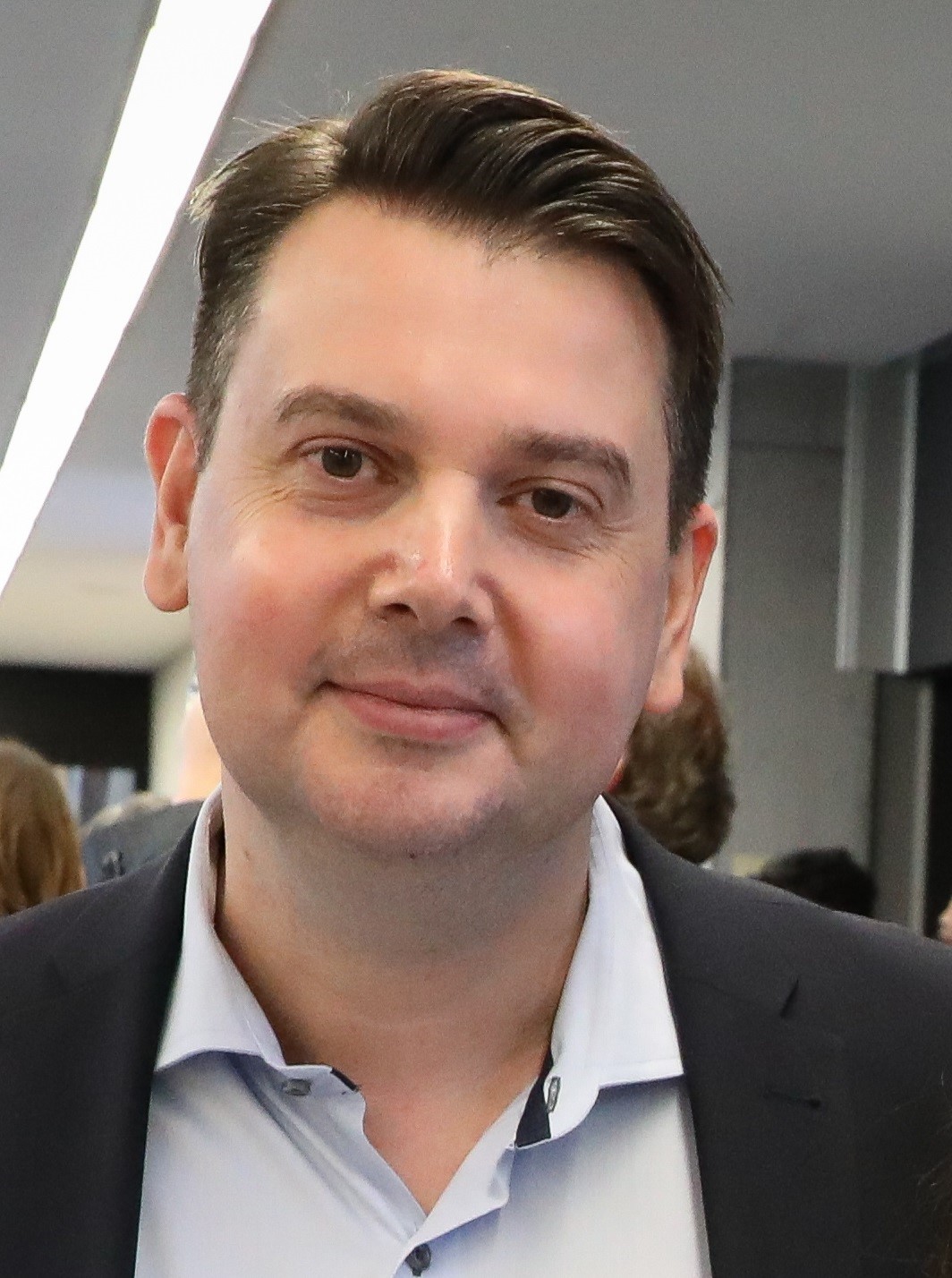 |
Dr. Jean-François LUTZ is CNRS research director and deputy director of the Institut Charles Sadron located in Strasbourg, France. He received his doctoral degree from the University of Montpellier II in 2000 and his habilitation degree from the University of Potsdam in 2009. Before joining the CNRS, he was post-doctoral fellow at Carnegie Mellon University and afterwards leader of the research group Nanotechnology for Life Science at the Fraunhofer Institute for Applied Polymer Research. His current research interests include the design of man-made informational macromolecules and their use for technological applications and artificial biology. He is author of over 200 publications including 10 patents and is listed since 2015 as an ISI Highly Cited Researcher (Clarivate Analytics) in the category Chemistry. Among several other awards, he has received in 2018 the Silver Medal of the French CNRS. Title of the talk: Synthetic Informational Polymers
|
|
|
Dr. Julien Nicolas completed his PhD in 2005 under the supervision of Prof. Bernadette Charleux at the University Pierre and Marie Curie in Paris (France), where he studied nitroxide-mediated polymerization. He then joined the group of Prof. David M. Haddleton at the University of Warwick (UK), as a postdoctoral researcher in the field of polymer-protein bioconjugates. In 2007, he obtained a CNRS researcher position at Institut Galien Paris-Sud (Univ. Paris-Sud) in Châtenay-Malabry (France) in the group of Prof. Patrick Couvreur and got promoted CNRS research Director in 2016. His current research activities lie in advanced macromolecular synthesis and in the design of innovative polymer-based nanomedicines in particular polymer nanoparticles and polymer prodrug nanocarriers for anticancer therapy. He is (co)author of 100+ peer review articles in international journals, 7 patents and 13 book chapters. He serves as Associate Editor for Chemistry of Materials (ACS) and is part of the Editorial Advisory Board of Polymer Chemistry (RSC) and ACS Macro Letters (ACS). He received the 2016 SCF/GFP award, the 2017 Polymer Chemistry Lectureship award, the 2018 Novacap award of the French Academy of Sciences and the 2019 Biomacromolecules/Macromolecules Young Investigator Award. Title of the talk: Degradable Vinyl Polymers for Biomedical Applications by Radical Ring-Opening Copolymerization
|
|
|
Dr. Jean-Marc Pujol is Deputy Director VP R&D External Affairs for Solvay, coordinating collaborative innovation relationships with stakeholders. He was former President of GFP French Polymer Group. He holds a chemical engineering degree from Ecole de Chimie de Strasbourg and a Ph.D in polymer synthesis. He held several R&D management positions, including R&D Pole Leader Europe for Surfactants, Polymers and Solvents, as well as for Polyamides & Isocyanates, and Silicones Synthesis, Formulation and Application Labs at Lyon and Cranbury. Before joining the industrial group in January 1990, he worked with 3M in the USA, developing products for electronics. Title of the talk: Polymer Innovation changing the Future
|
|
|
Dr. Mona Semsarilar earned her PhD from the University of Sydney in 2010. She then moved to the University of Sheffield (UK) to work on Polymerization Induced Self-assembly (PISA) under supervision of Prof. Steven Armes (FRS). In 2015 she was recruited by the French national research organization (Centre National de la Recherche Scientifique- CNRS) as a first class research scientist based in the European Institute of Membranes (Institut Européen des Membranes – IEM) in Montpellier. Her research focuses on using synthetic chemistry to tailor molecular design and control self-assembly to prepare porous materials for membrane applications. To date she has (co)authored 50 peer reviewed publications, receiving >1800 citations, and has an h-index of 20 (Web of Science). Title of the talk: Functional nanostructured thin film membranes from colloidally stable particles prepared via Polymerization-Induced Self-Assembly (PISA)
|
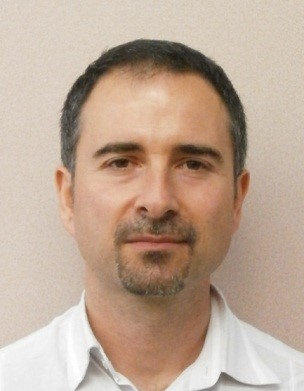 |
Prof. Christophe Sinturel is Professor of Chemistry at the University of Orléans. He received his Master degree in Organic Chemistry in 1994 and his Ph.D. in Polymer Science in 1998 from the University Blaise Pascal of Clermont-Ferrand (France). He spent one year at the University of Brighton (UK) in 1999 as Postdoctoral Research Associate before being appointed as an associate professor the same year at the University of Orléans (France). After completion of his HDR (Habilitation à Diriger les Recherches) in 2008 he got a full-professor position at the University of Orléans in 2010. In 2014-2015, he spent a year at the Polymer Group of the University of Minnesota (USA), hosting by Prof. Marc Hillmyer, as a Visiting Scholar (délégation CNRS). He also visited the Uiversity of Nagoya in April this year (hosted by Prof. Matsushita). His current research interests concern polymer blends, nanostructured polymers, polymer nanocomposites and block polymers.
|
|
Japanese Delegation | |
|
|
Prof. Syuji Fujii completed his PhD degree in 2003 under the supervision of Prof. Masayoshi Okubo at Kobe University, where he studied synthesis of polymer particles in supercritical carbon dioxide. His postdoctoral studies were carried out at the University of Sussex (U.K.) from 2003 to 2004 and at the University of Sheffield (U.K.) from 2004 to 2006 with Prof. Steven Armes in the field of polymer particle-stabilized emulsions (Pickering emulsions), nanocomposite particles and shell-crosslinked micelles. He joined Osaka Institute of Technology as a lecturer in 2006 and was promoted to associate professor in 2013 and professor in 2017. His major research interests focus on synthetic polymer chemistry, design and characterization of polymer-based particles, biomimetics, and particle-stabilized soft dispersed systems, including emulsions, foams, liquid marbles and dry liquids. He serves as the Editorial Advisory Board of Langmuir (ACS). He has received several awards, including Asahi Kasei Award from The Society of Polymer Science, Japan (2018), Progress Award from Adhesion Society of Japan (2017) and Incentive Award of Division of Colloid and Surface Chemistry from The Chemical Society of Japan (2013). He is (co)author of > 270 publications including > 40 review articles and 15 book chapters. Title of the talk: Soft dispersed systems stabilized with polymer particles: Foams and liquid marbles
|
|
|
Prof. Takashi Kato is professor at Department of Chemistry and Biotechnology, School of Engineering, the University of Tokyo since 2000. He received his Ph.D. degree at the University of Tokyo in 1988. After his postdoctoral research at Cornell University, Department of Chemistry with Professor Jean M. J. Frechet on supramolecular liquid crystals and polymers (1988-1989), he joined the University of Tokyo. His research focuses on design, synthesis and functionalization of self-assembled materials including supramolecular soft materials such as liquid crystals, functional polymers, stimuli-responsive materials, nanostructured ion- and electron-, and photo-active materials, liquid-crystalline gels, and bio-inspired organic/inorganic hybrids. He is currently the President of the Society of Polymer Science, Japan. He was the President of the Japanese Liquid Crystal Society. He is currently a project leader of MEXT Project, Aquatic Functional Materials (FY 2019-2023). He received the Award of the Society of Polymer Science, Japan (2010), The Fast Breaking Paper of Thomson Reuters (2012), The Chemical Society of Japan Award (2016), and The Paper Award of the Japanese Liquid Crystal Society (2019). He is advisory board of Advanced Materials, Chemical Science, Advanced Science, Small, Journal of Materials Chemistry C, ChemPlusChem, New Journal of Chemistry. He is honorary advisory board of Polymer Journal. He published 470 papers including original papers, reviews, and chapters of books with around 20,400 citations (web of science). His h-index is 78 (web of science). Title of the talk: Nanostructured Functional Liquid-Crystalline Polymers and Hybrids
|
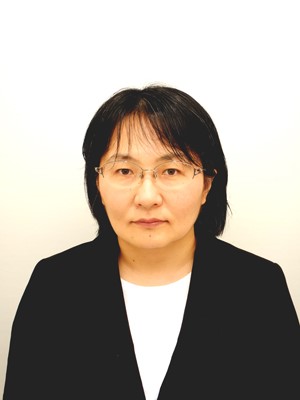 |
Prof. Yoshiko Miura is currently Professor at Kyushu University. Yoshiko Miura received her B Eng. Degree in 1995, M Eng. Degree in 1997, and Dr Eng. Degree in 2000 from the Kyoto University. She spent her postdoctoral period from 2000 to 2001 at the University of Pennsylvania in Professor Virgil Percec’s group. In 2001, she joined Nagoya University, as Assistant Professor. In 2005, she was appointed Associate Professor at the Schools of Materials Science in Japan Advanced Institute of Science and Technology. In 2010, she was appointed Professor at the Department of Chemical Engineering, at Kyushu University. Title of the talk: Denove design of Biofunctional Glycopolymer
|
|
|
Prof. Toshifumi Satohis a Professor at the Division of Applied Chemistry, Faculty of Engineering, Hokkaido University, Japan. He received his PhD in Polymer Chemistry from Hokkaido University in 1996, under the guidance of Prof. Kazuaki Yokota and Prof. Toyoji Kakuchi, where he studied the regio- and stereoselective cyclopolymerization of 1,2:5,6-dianhydrohexitol. In 1994 he became a research fellow (DC1) of the Japan Society for the Promotion of Science (JSPS). He subsequently joined the faculty of this University as an Instructor in 1996 and was promoted to an Associate Professor in 2007, then a full Professor in 2013. He is also a Vice Dean of Graduate School of Chemical Sciences and Engineering, Hokkaido University, from 2016. During the period, he was also a JSPS Post-Doctoral Fellow in Bruce M. Novak's group at the University of Massachusetts at Amherst and North Carolina State University, USA, between 1998 and 2000. He has ca. 290 publications to his credit, including peer-reviewed articles, reviews, and book chapters in international journals with around 5,150 citations. He has received SPSJ Asahi Kasei Award 2013 by the Society of Polymer Science, Japan (SPSJ), the SPACC Award 2015 by the Society of Pure and Applied Coordination Chemistry (SPACC), and Hokkaido University President's Award for Outstanding Research 2016 by Hokkaido University. His current fields of interest are synthesis of architecturally complex polymers, preparation of microphase-separated structures, and development of living polymerizations using organocatalysts. Title of the talk: Downsizing Feature of Microphase-separated Structures via Intramolecular Crosslinking of Block Copolymer
|
|
|
Prof. Madoka Takai is a Professor of Department of Bioengineering at The University of Tokyo from 2011. She received PhD. in Applied Chemistry from School of Fundamental Science and Engineering, Waseda University at 1999. She worked for Toshiba Corporation during 1990-1991. She was a Research Fellow from 1999 to 2000, Japan Science and Technology Agency (JST), and worked as "Plasma chemistry for amorphous silicon solar cell". From 2001 she moved to Department of Materials Engineering, School of Engineering, The University of Tokyo as research associate, and them she promoted the associate professor at 2003. Her interest is basic interface science between biomolecules or cells and materials, and development of nano-materials for biomedical devices, such as implanted artificial organ, biosensor, microfluidics devices. She received Award of research achievement for female researcher, “leading research of biosensor and novel biomaterials” The Japan Society of Applied Physics, 2012. Title of the talk: Crosslinked phospholipid polymers for anti-adhesiveness of bacterial and blood cells
|
|
|
Prof. Yoshinori Takashima is a Professor of Department of Macromolecular Science, Graduate School of Science, and Institute for Advanced Co-Creation Studies, Osaka University. He received his Ph.D. degree in 2003 from Osaka University, under the guidance of Prof. Akira Harada, focusing on the polymerization catalyst using group 4 transition metal catalyst. He was selected as a Research Fellow of the Japan Society for the Promotion of Science (JSPS) in 1999–2002. During the winter of 2003, as a visiting fellow, he worked at Prof. Jeffrey M. Stryker’s lab, Department of Chemistry, the Univ. of Alberta. In 2004, he served as an assistant professor for Professor Akira Harada, dealing with supramolecular polymer based on cyclodextrin derivatives. In 2011, he worked at Prof. Philip A. Gale’s lab, Department of Chemistry, the Univ. of Southampton as a visiting researcher. In 2016, he joined the Graduate School of Science at Osaka Univ. as a lecturer. In 2018, he visited to Prof. Nicolas Guiseppone of the Institut Charles Sadron, the Univ. of Strasbourg as a visiting professor. At the same year, he joined Institute for Advanced Co-Creation Studies and the Graduate School of Science at Osaka Univ. as a professor. His research interests include supramolecular materials, catalysts, molecular motors and devices. He has received in 2014 Commendation for Science and Technology by the Minister of Education, Culture, Sports, Science and Technology, the Young Scientists' Prize. He is author of over 180 publications including 30 patents with around 8,700 citations (Scopus). Title of the talk: Molecular design and functionalization of polymeric materials using reversible and movable crosslinkings
|
|
|
Prof. Keiji Tanaka is a Professor at the Department of Applied Chemistry and a Director at Center for Polymer Interface and Molecular Adhesion Science in Kyushu University, Japan. He received his B.S. (1993), and Ph.D. (1997) degrees in Polymer Chemistry from the Department of Applied Chemistry, Kyushu University. Then, he moved to Department of Chemistry at the University of Wisconsin-Madison to be a research associate. In 2000, he was appointed as an Assistant Professor at Kyushu University and was promoted to a Professor in 2009. He is also a Professor at International Institute for Carbon-Neutral Energy Research (WPI-I2CNER), Kyushu University. His research centers on the structure and physical properties of polymers in confined systems, including surfaces, interfaces, and thin films. He has published over 220 peer-reviewed publications and is a Fellow of the American Physical Society. He received The Adhesion Society of Japan Award (2018), Japan Academy Medal Prize (2015), Japan Society for the Promotion of Science Prize (2014), The Society of Polymer Science, Japan, Wiley Award (2014), The Society of Fiber Science and Technology, Japan Award (2013), and The Young Scientists' Prize for the Commendation of Science and Technology by the Minister of Education, Culture, Sports, Science and Technology (MEXT), Japan (2008). He has been now leading a Japan Science and Technology Agency national project, named Innovative Adhesion Technology Based on 4-dimensional Multi-scale Analysis of Interfaces, in which 15 academic organizations and 17 companies are involved, as a project manager. Title of the talk: Mobility Gradient of Polymer Chains near a Solid Interface |
|
|
Prof. Yoshinobu Tsujii is a Professor of the Institute for Chemical Research, Kyoto University. He received his Ph.D. degree in 1991 from Kyoto University, under the guidance of Prof. Masahide Yamamoto, focusing on stabilization of photoinduced radical ions in polymer systems. He was appointed to an instructor in 1989 and an assistant professor in 2001 and promoted to a professor in 2008 in the Institute for Chemical Research, Kyoto University. Over the period from 1992 to 1993, he visited to Prof. Gerhard Wegner in the Max Planck Institute for Polymer Research, Germany as a visiting research fellow. In 2003, he received the SPSJ Wiley Award from the Society of Polymer Science, Japan. His research interests include polymer materials design based on polymerization chemistry and precision control of surface/interface property based on physical chemistry. In these 5 years, he has been leading an interdisciplinary and industry-academia collaborating project (ACCEL funded by the Japan Science and Technology Agency) in tribology from fundamental to applications. Title of the talk: Controlled Synthesis and Lubrication Characteristics of Concentrated Polymer Brushes |
|
|
Prof. Takashi Uemura obtained his PhD at Department of Polymer Chemistry, Kyoto University in 2002 under the guidance of Prof. Yoshiki Chujo. He then began his academic career as Assistant Professor and Associate Professor at Department of Synthetic Chemistry and Biological Chemistry in Kyoto University. In 2018, he moved to the University of Tokyo where he holds the position of Professor. He was also a researcher of PRESTO program (2006–2010) and has been a research director for a CREST program (2013-2020) of Japan Science and Technology Agency (JST). He has been appointed as Associate Editor of several international journals, such Dalton Trans. (RSC), Chem. Lett. (CSJ), and Bull. Chem. Soc. Jpn. (CSJ). He also joined the Advisory Board of Chem. Sci. (RSC) in 2019. During the last five years, he has delivered >100 invited lectures at conferences and symposium. He has received a number of awards, including the Chemical Society of Japan (CSJ) Award for Young Chemists, the Commendation for Science and Technology by the Minister of Education, Culture, Sports, Science, and Technology, Kao Research Initiative Award, and JSPS Prize. His research interest focuses on the preparation of synergistic nanohybrids between porous coordination compounds and polymeric materials, in particular, polymer chemistry in confined nanospaces. Title of the talk: Polymer Chemistry in Nanospaces
|
| Online user: 8 | Privacy |

|



